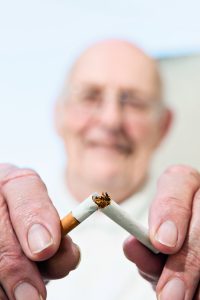8 Tips to Help You Clean Your Lungs after Quitting Smoking

Quitting smoking is one of the most important steps you can take to improve your health. Smoking damages your lungs and affects your overall health, and quitting is the best way to reduce your risk of health problems. But once you’ve quit, it’s essential to take steps to clean your lungs and reduce the damage caused by smoking.
This blog article will cover some tips to help you clean your lungs after quitting smoking.
1. Start Exercising Regularly
Exercise helps to clean your lungs and improve their function. Regular aerobic exercise can help to improve lung capacity and reduce inflammation in the lungs. It also helps to improve circulation, which can help to reduce the damage caused by smoking.
Aim to get at least 30 minutes of exercise each day, and try to choose activities that involve deep breathing, such as walking, running, or swimming.
2. Eat Plenty of Fruits and Vegetables
Eating a diet rich in fruits and vegetables can help to reduce inflammation in the lungs and improve lung function. Fruits and vegetables are loaded with antioxidants, such as blueberries, and kale, which can help to reduce the damage caused by smoking.
Limiting your intake of processed foods is also important, as these can contain additives that can damage your lungs.
3. Take a Break from Secondhand Smoke
Exposure to secondhand smoke can cause significant damage to your lungs, so it’s important to avoid it after quitting smoking. If you are in a situation where you can’t avoid secondhand smoke, make sure to limit your exposure as much as possible.
4. Quit Drinking Alcohol
Drinking alcohol can reduce the amount of oxygen in your blood, which can cause damage to your lungs. If you’ve quit smoking, now is a great time to quit drinking as well.
5. Stay Hydrated
Staying hydrated can help to reduce the damage caused by smoking. Drinking plenty of water can help to flush toxins from your lungs and reduce inflammation. Aim to drink at least eight glasses of water per day.
It is also important to avoid sugary drinks, as these can have a negative effect on your lungs.
6. Get Plenty of Rest
Getting enough rest is important for overall health, but it can also help to clean your lungs. When you sleep, your body works to repair cells and flush toxins from your lungs.
7. Consider Using Air Purifiers
Air purifiers can be a great way to reduce the damage caused by smoking. They can help reduce the amount of toxins in the air and the amount of secondhand smoke. Additionally, they can help to reduce the smell of smoke, making it more pleasant for those who don’t smoke.
8. Get Regular Check-Ups from Your Doctor
The doctor can assess your lung health and make sure that your lungs are healing properly. They can also provide advice and support to help you stay on track with your quit-smoking plan.
Conclusion
Quitting smoking is one of the best decisions you can make to improve your overall health. After quitting, it is essential to cleanse your lungs in order to reduce the effects of smoking.
You can do this by exercising regularly, consuming fruits and vegetables rich in antioxidants, avoiding exposure to secondhand smoke, quitting drinking alcohol, drinking plenty of water, considering using purifiers, and getting regular check-ups from your doctor.
By taking these steps, you can help your lungs to recover and become healthier. Additionally, it is important to avoid relapsing into smoking, as this can undo any progress that you make.
At Morristown HC, we’re committed to helping you on your journey to quitting smoking. We understand that quitting can be challenging, but we’re here to provide you with the support and resources you need. If you’re looking for respite services in Morristown to help you quit smoking, don’t hesitate to call us. We’re here to help you on your journey to a smoke-free life!